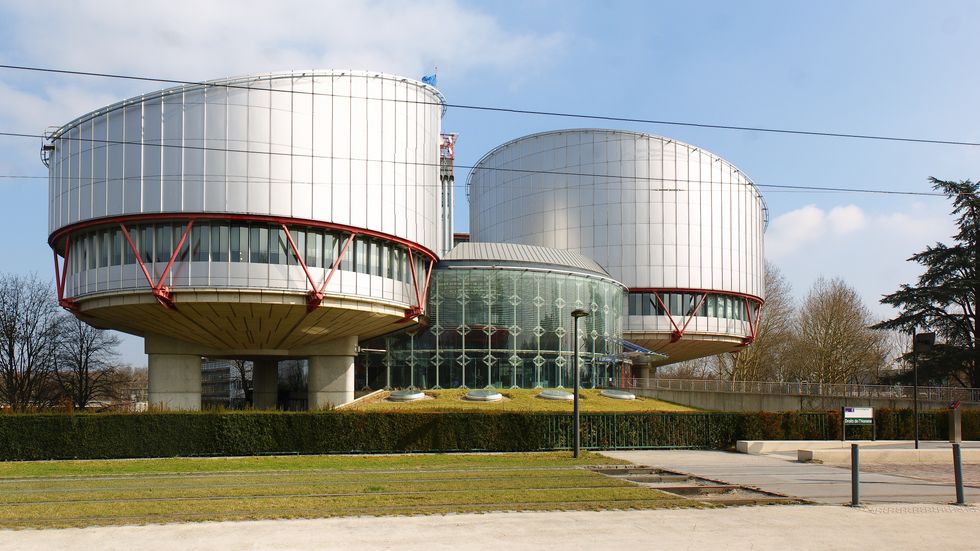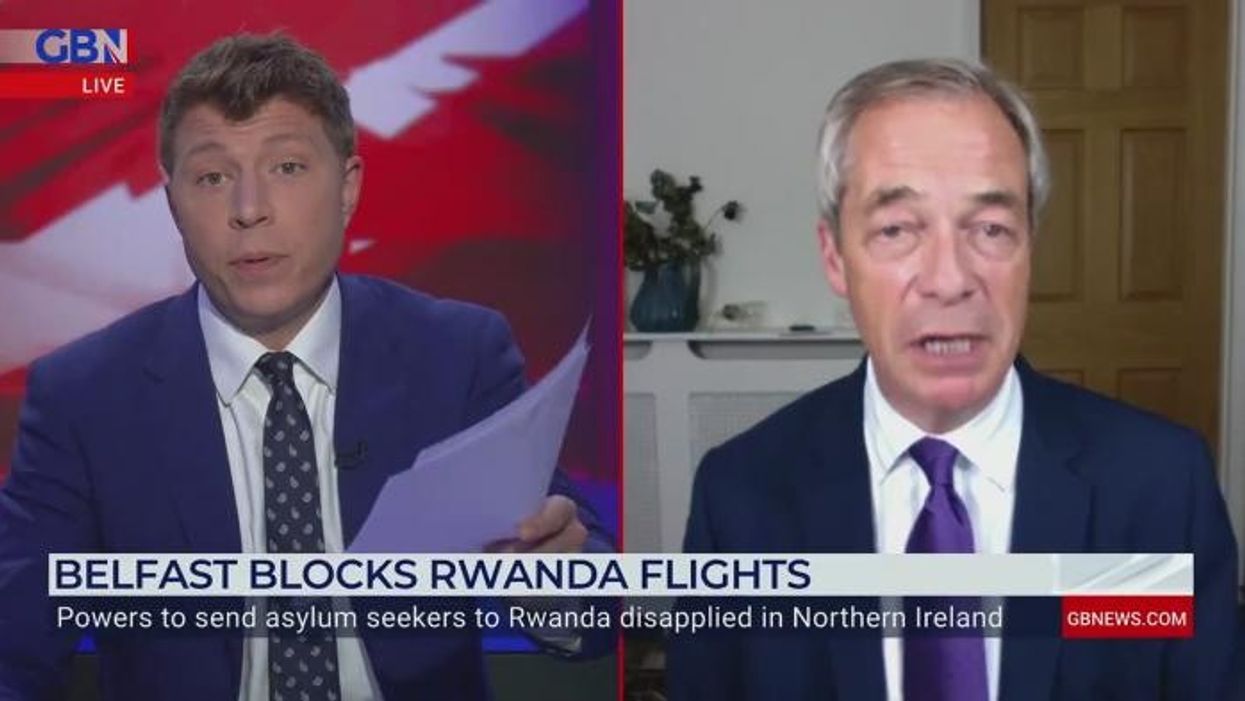Why I now believe Britain MUST leave ECtHR - it's dangerous to UK sovereignty, says Sally-Ann Hart

The ECtHR rules on individual or state applications alleging violations of civil and political rights outlined in the ECHR
Don't Miss
Most Read
The European Court of Human Rights (ECtHR) is an international court established in 1959 and was created as part of the Council of Europe’s efforts to protect human rights across Europe.
The ECtHR’s primary function is to interpret and apply the European Convention on Human Rights (ECHR).
The ECtHR rules on individual or state applications alleging violations of civil and political rights outlined in the ECHR.
Europe’s oldest political organisation, the Council of Europe, was founded in 1949 with a mission to uphold human rights, democracy, and the rule of law in Europe.

Rishi Sunak raised the possibility of leaving the ECtHR by stating that immigration control and border security were "more important than membership of any foreign court"
|PA/GB News/Wikipedia Commons
It was established to prevent a return to the totalitarian regimes and the atrocities that blighted Europe in the first half of the 20th century, and defend fundamental freedoms, peace and democracy.
The CoE includes 46 member states, 27 of which are also members of the European Union.
The CoE is entirely separate from the EU, although from my experience as a member of the UK Delegation to the CoE, I would argue that the EU’s influence is strong – not simply to do with the size of the EU, but the 27 member States’ policy consistency and financial contributions.
The ECHR, ECtHR and the Council of Europe have their origins in the aftermath of the Second World War, and both the ECHR and ECtHR need reform to reflect and address modern-day challenges.
I take a tough stance on illegal migration, but despite the ECtHR preventing the UK Government from deporting asylum seekers to Rwanda in 2022, and despite several of my colleagues advocating to withdraw from the ECtHR, I felt on balance it would be better to seek reform of ECHR and ECtHR to reflect current challenges, especially as regards illegal migration.
The EU especially needed to – still needs to - address illegal migration, and working with other European countries on the CoE could lead to these necessary reforms.
LATEST DEVELOPMENTS:

Sally-Ann Hart originally felt it would be better to seek reform of ECHR and ECtHR to reflect current challenges
|Wikipedia Commons
Crudely, if Europe, especially EU countries, gets a grip on illegal migration, that also benefits the UK.
Just last month, the Prime Minister raised the possibility of leaving the ECtHR by stating that immigration control and border security were "more important than membership of any foreign court".
Whilst it is welcome news to hear that the ECtHR has now toughened up Rule 39 orders which were used by its judges to block the first deportation to Rwanda flight in June 2022, one wonders whether it will indeed be now more difficult for migrants to block these flights to Rwanda without scrapping the Human Rights Act 1998.
Interestingly, the ECtHR views the ECHR as a "living instrument doctrine" and interprets it in light of present-day conditions.
So, whilst I want the ECtHR and ECHR to reflect the urgent migration crisis, I do not want judges mission-creeping into countries’ domestic legislation, which is exactly what the judges have done with their recent ruling that governments have a duty to protect people from climate change.
Not only is this utter nonsense, it is also dangerous for the UK’s sovereignty and our democracy.
It also risks undermining trust in our great country’s institutions, including our own independent judiciary.
The inevitable result is that my stance has shifted. I now advocate for the UK to withdraw from the ECtHR.
We have witnessed these foreign judges repeatedly mission-creep into domestic legislation and seek to influence the political agenda, which has had serious consequences for the UK’s Conservative Government.
Trusting judges to stick to interpreting and applying the law is challenging and it is time to reassess our commitment and ensure that any judicial decisions align with the core principles of justice and national interest.











